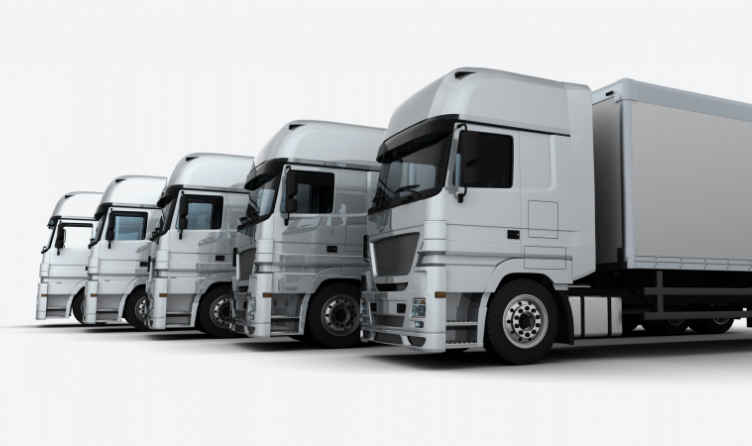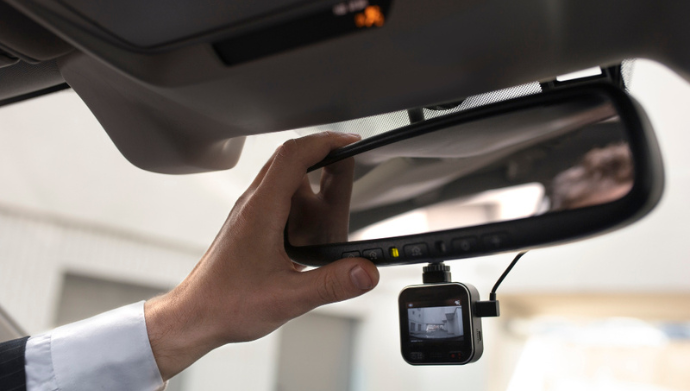Why Your Fleet Needs a Vehicle Camera System: Enhancing Security and Driver Accountability
20 November 2024
5 Mins Read

- Fleet Vehicle Camera System: How Do They Help?
- 1. Enhanced Security for Vehicles and Assets
- 2. Improved Driver Accountability and Behavior
- 3. Accident Evidence Collection
- 4. Enhanced Customer Service and Delivery Verification
- 5. Reduced Insurance Premiums and Liability
- 6. Real-Time Monitoring for Immediate Action
- 7. Enhanced Driver Training and Performance Feedback
- 8. Boosting Customer Satisfaction Through Service Transparency
- Wrapping Up
Fleet managers face many challenges in ensuring the efficiency and safety of their operations. This is why implementing an effective vehicle camera system has become an essential way to address these issues. Moreover, they also provide essential benefits that go beyond simple recording and monitoring. These camera systems are effective in:
- Improving security
- Promoting responsible driving
- Helps solve disputes efficiently
Additionally, these systems allow fleet managers to monitor every aspect by capturing real-time footage of road conditions and vehicles. These can be driver behavior, deter theft, and streamline any claim processes.
Here, we will explore the key reasons why you should consider integrating a vehicle camera system to help reduce accidents and liabilities and increase customer satisfaction. Let’s get started.
Fleet Vehicle Camera System: How Do They Help?

Now that you are aware of what Fleet Vehicle Camera Systems are, it is time for you to learn about how they help you.
Here are some of the major benefits of having a Vehicle Camera System for your fleet that you need to know about:
1. Enhanced Security for Vehicles and Assets
A vehicle camera system raises the level of security by continuously observing the exterior and interior of fleet vehicles. Since potential thieves are less likely to target vehicles under surveillance, the footage captured by cameras can deter theft.
Moreover, recorded video provides vital evidence to find the criminals and retrieve property during a break-in or vandalism.
As fleet managers and business owners, you can rest easy knowing that this extra layer of security protects the vehicle and any precious goods it may carry.
2. Improved Driver Accountability and Behavior
When drivers are aware of the fact that they are being watched, they tend to follow safe and responsible driving procedures. It is because of this responsibility, that drivers avoid any careless actions like:
- Speeding
- Hard braking
- Inattentive driving
Moreover, these upgrades eventually result in a safer fleet and fewer collisions, which lowers the company’s liability. Fleet managers can assist drivers in developing their abilities and creating a more reliable and professional team by spotting patterns in driver behavior and offering tailored coaching and support.
3. Accident Evidence Collection
Vehicle cameras offer unquestionable proof of what happened in the unfortunate event of an accident. This feature protects the driver and your business from unfounded allegations.
The accident’s conditions can be captured on camera from a variety of perspectives, indicating whether the driver was at fault or whether outside forces were involved.
This information is crucial for promptly and equitably resolving insurance claims, which could lower premiums and safeguard the fleet’s reputation.
Additionally, everyone is motivated to drive more responsibly when they know that occurrences are being documented.
4. Enhanced Customer Service and Delivery Verification
Vehicle cameras can raise customer satisfaction by guaranteeing schedule adherence and offering proof of delivery.
Camera footage can confirm that deliveries were made as promised and on time in industries that depend on on-time delivery.
This evidence safeguards the business in dispute situations by verifying that services were rendered as anticipated. Additionally, fleet managers can optimize performance and guarantee a higher service level by monitoring delivery times and routes.
5. Reduced Insurance Premiums and Liability
Insurance companies see how valuable car camera systems are in lowering risk. Hence, your business can experience lower premiums if you have this technology installed.
These technologies help prevent expensive legal disputes and guard against false claims by offering a transparent record of incidents.
Moreover, insurers frequently discount fleets with camera systems because of the increased openness. Over time, this cost-cutting approach and lower accident rates will result in significant financial gains, making camera systems worth investment.
6. Real-Time Monitoring for Immediate Action
With road accidents becoming more frequent than ever, installing vehicle camera systems is the best option for taking quick action in case of accidents. These camera systems have real-time monitoring capabilities that allow fleet managers to respond quickly to risky situations and prevent them from escalating.
Moreover, if your driver faces a potential threat, such as a mechanical failure or road accident, the real-time footage allows your management to intervene promptly and guide drivers to the next step. Remember, this immediate support can be highly critical in the following ways:
- Ensuring driver safety
- Minimizing vehicle damage
- Reduces potential losses
- Saves time and avoids unnecessary delays
This is why most experienced fleet managers of the present age prioritize installing vehicle camera systems.
7. Enhanced Driver Training and Performance Feedback
Fleet managers can use footage from car cameras to provide drivers with targeted, helpful feedback. Remember, this system allows for a smooth examination of real-world driving circumstances.
They also enable drivers to identify areas that require development, such as safer braking techniques or better heavy traffic management.
Additionally, this data-driven strategy enhances training programs by emphasizing actual roadside obstacles. Ongoing performance evaluations assist drivers in improving their abilities and upholding stricter safety regulations, which lowers collision rates and boosts fleet productivity.
8. Boosting Customer Satisfaction Through Service Transparency
Vehicle video systems document every trip and serve as evidence of service completion and delivery schedule compliance. This transparency makes customers more confident that their goods will be handled safely and promptly.
Moreover, video proof can confirm claims in customer complaints or delivery issues, resulting in speedier resolution and more customer satisfaction.
With each recording, you can check how fast the delivery is reaching the destination and whether there were challenges along the way.
This way, customers and businesses can build trust with each other, ensuring a smooth flow of operations.
In addition to protecting the company’s brand, the camera system’s transparency gives customers peace of mind. This can make a big difference in fiercely competitive marketplaces.
Wrapping Up
A car camera system has many advantages for fleet management, from increasing driver accountability to strengthening security.
These systems contribute to a safer, more dependable fleet by offering concise, actionable information that lowers accidents and claims.
In fleet management, the capacity to enhance training methods and provide real-time monitoring and assistance to drivers has proven useful.
Finally, a vehicle camera system is a crucial tool that offers both short-term and long-term benefits to companies trying to increase fleet safety, lower liabilities, and provide better customer service.
Read Also:



















Comments Are Closed For This Article